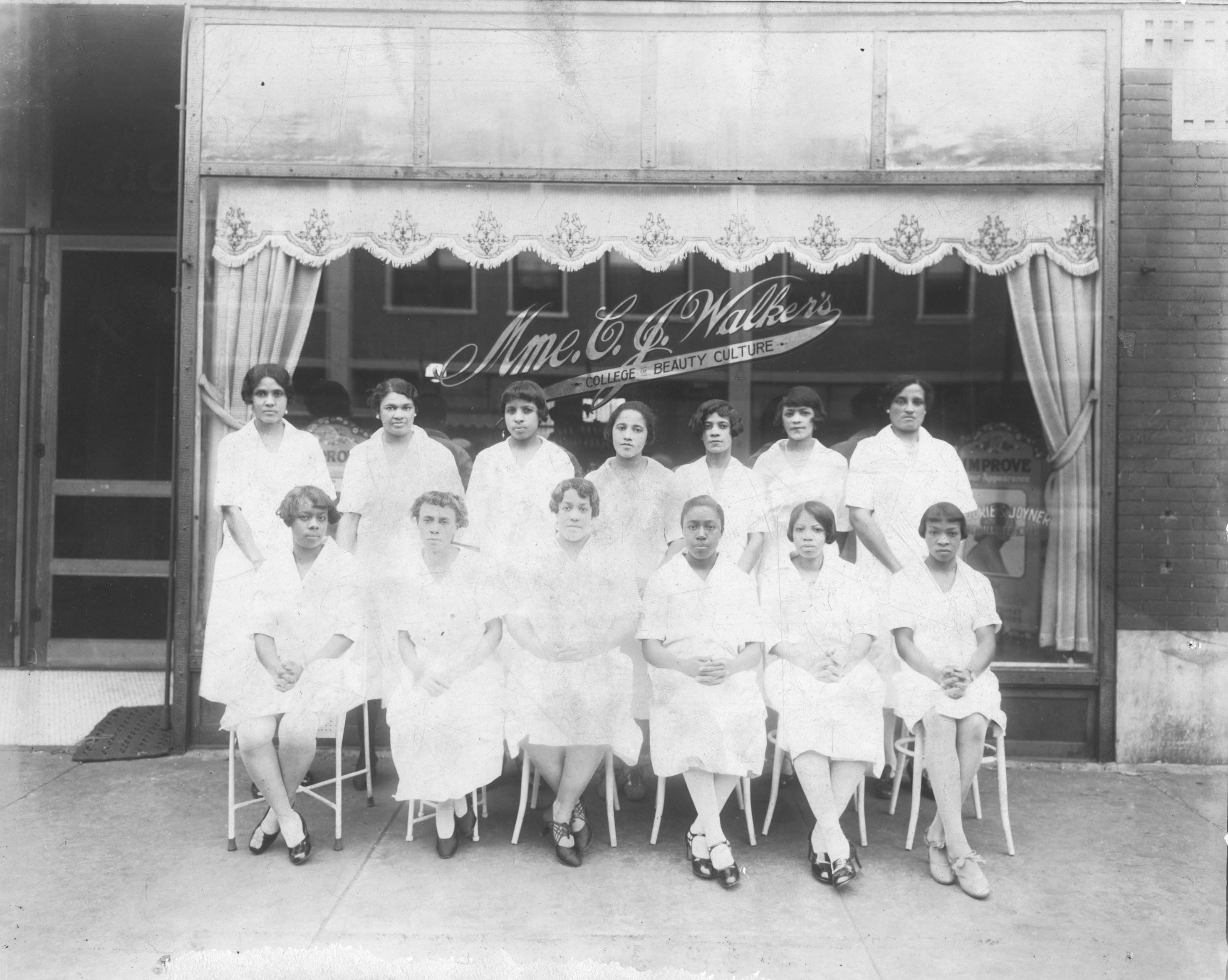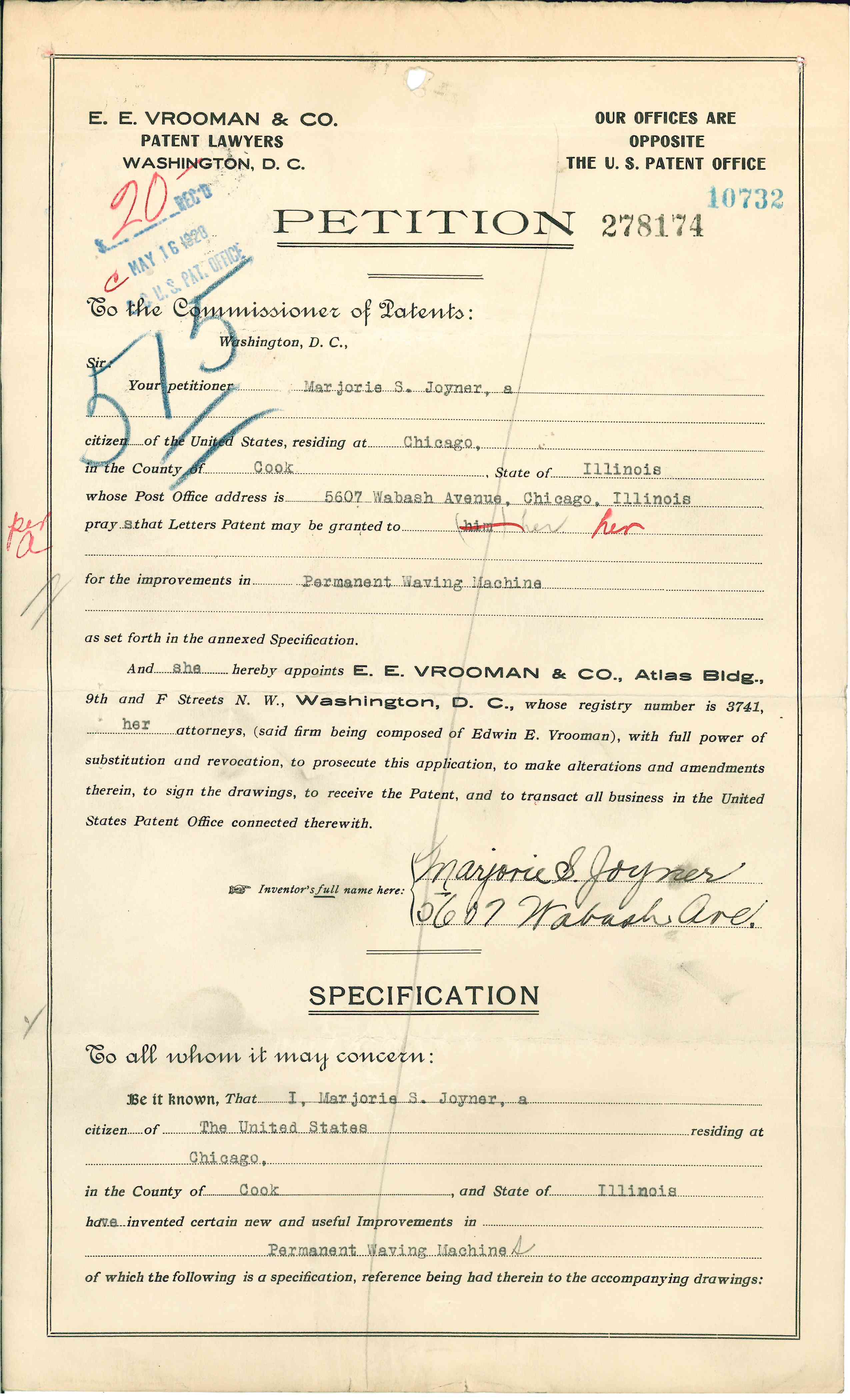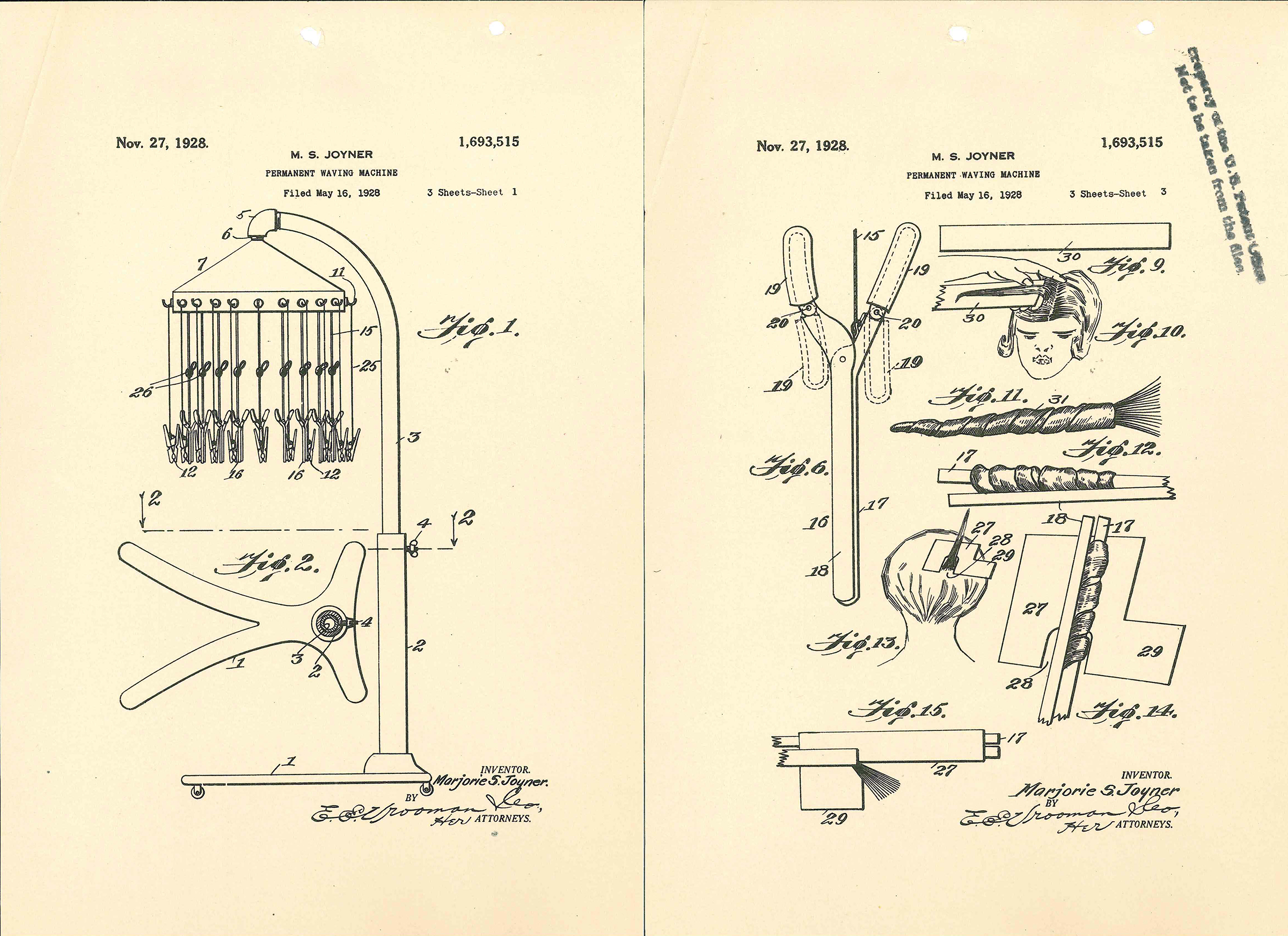National Inventor’s Day: Marjorie S. Joyner

Courtesy of the Chicago Public Library
Among the first African American women to receive a patent, inventor Marjorie Stewart Joyner had an influential career as a teacher and activist.
Born in 1896 in the Blue Ridge Mountains of Virginia, Marjorie Stewart moved to Chicago in 1912. Four years later, she was the first African American to graduate from the A. B. Moler Beauty School and went on to open her own salon. Joyner continued her cosmetology education, eventually meeting and taking a class taught by hair care mogul Madame C. J. Walker.
When Joyner met Madame C. J. Walker, proprietor of the Walker Manufacturing Company, Walker employed thousands of Black women and had the largest African American-owned company in the United States in 1917. Joyner was a teacher for and eventually became the national supervisor for Madame Walker Beauty Schools.

While making a pot roast, Joyner was inspired to use her pot roast rods as rollers, creating a device that applied multiple rods to the hair at once, greatly reducing the time needed to create curls and waves for women's hair. After tinkering and experimenting with different setups, Joyner came up with her one-of-a-kind permanent wave machine.
The object of the invention is the construction of a simple and efficient machine that will wave the hair of both white and colored women. —Marjorie S. Joyner, 1928
Unaware that she should patent her invention, Joyner used her machine for years before she submitted her petition and drawings on May 16, 1928. Not long after, Joyner secured a second patent for her scalp protector invention.
Joyner was a devoted teacher for more than 50 years. She founded the Alpha Chi Omega Sorority and Fraternity for beauty culture students in 1945 and the United Beauty School Owners and Teachers Association a year later. She also helped draft the first cosmetology laws for the State of Illinois and was a founding member of the National Council of Negro Women.
Learn more at: Marjorie S. Joyner: More than an Inventor – Pieces of History
February is also Black History Month. Find more resources related to African American History at Archives.gov.
